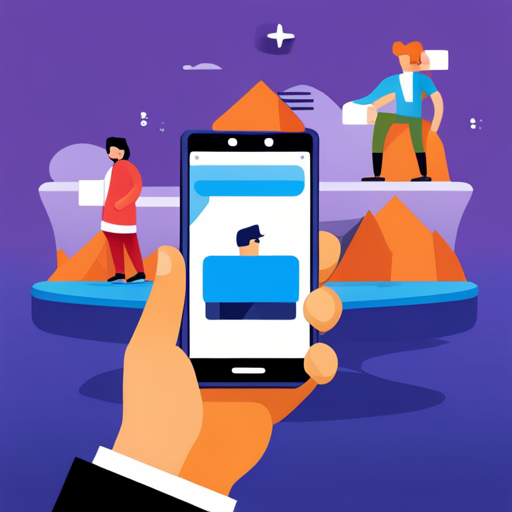How Social Media Marketing Can Boost Brand Awareness
In today’s digital age, social media marketing is one of the most effective ways for businesses to increase brand awareness. With billions of users worldwide, platforms like Facebook, Instagram, Twitter, LinkedIn, and TikTok provide businesses with a direct line to engage with their target audience, build relationships, and create lasting impressions. By leveraging social media marketing, brands can extend their reach, amplify their message, and grow their customer base.
In this article, we’ll explore how social media marketing can boost brand awareness and the key strategies businesses can use to maximize their social media presence.
What is Social Media Marketing?
Understanding Social Media Marketing
Social media marketing (SMM) is the use of social media platforms to promote products, services, or content. It involves creating and sharing content, engaging with followers, running targeted ads, and analyzing performance metrics. SMM is a versatile marketing tool that allows businesses to reach large audiences and create a dialogue with their customers.
Social media platforms provide an ideal space for brands to:
- Increase visibility: Engage with both current and potential customers.
- Build community: Foster loyalty by interacting with your audience in real-time.
- Boost credibility: Showcase your brand’s authority and trustworthiness through user-generated content, reviews, and testimonials.
How Social Media Marketing Boosts Brand Awareness
1. Reaching a Larger Audience
Social media platforms have a massive user base, making it easier for businesses to reach a broad and diverse audience. Unlike traditional marketing channels, social media allows brands to connect with people across the globe in a cost-effective way. By consistently sharing valuable content and engaging with followers, brands can increase their visibility and build recognition.
For example, a company posting consistently on Instagram or Facebook increases its chances of being seen by followers, who may then share the content with their networks, further expanding its reach.
2. Establishing a Strong Brand Identity
Social media is an excellent platform for establishing and reinforcing your brand identity. Through the content you share, the tone of voice you use, and the visuals you present, you can shape how your audience perceives your brand. Whether it’s showcasing your products, sharing behind-the-scenes moments, or highlighting company values, social media allows you to communicate what your brand stands for.
3. Engaging with Customers
Unlike traditional advertising, social media allows for two-way communication. This interaction creates a sense of community and helps humanize your brand. Responding to comments, answering questions, and participating in conversations show customers that you value their opinions and are accessible.
Engagement is a key factor in brand awareness. The more you interact with your audience, the more they’ll recognize your brand and develop a connection with it.
4. Leveraging User-Generated Content (UGC)
User-generated content (UGC) is one of the most powerful ways to boost brand awareness on social media. When customers share photos, videos, or reviews about your products or services, it acts as free promotion for your brand. UGC adds authenticity and social proof, as potential customers are more likely to trust the opinions of other consumers.
Encouraging customers to share their experiences and tag your brand on social media can lead to organic growth and increased visibility. Many brands run UGC campaigns, offering incentives such as giveaways or features on their official pages to encourage participation.
5. Running Targeted Social Media Ads
While organic social media efforts are important, paid social media advertising allows businesses to reach a much larger, targeted audience. Platforms like Facebook, Instagram, and LinkedIn offer advanced targeting options that enable businesses to deliver ads to specific demographics, interests, behaviors, and locations.
Running targeted ads allows businesses to expose their brand to people who may not have encountered it organically, driving brand awareness and generating interest.
6. Collaborating with Influencers
Influencer marketing has become an integral part of social media strategy, especially when it comes to boosting brand awareness. By partnering with influencers who have large and engaged followings, brands can tap into a wider audience. Influencers can create authentic content that promotes your products or services, helping you gain credibility and reach new potential customers.
Micro-influencers, who have smaller but highly engaged audiences, can also be effective in creating trust and driving brand awareness within specific niches.
Key Social Media Marketing Strategies for Boosting Brand Awareness
1. Consistent Posting and Content Strategy
Consistency is key when it comes to building brand awareness on social media. Regularly posting valuable, relevant, and engaging content keeps your brand at the top of your audience’s mind. Plan a content calendar to ensure a consistent flow of posts across all platforms.
Focus on sharing a variety of content, such as:
- Educational posts: Teach your audience something related to your industry.
- Behind-the-scenes content: Show the human side of your brand.
- Customer testimonials and success stories: Highlight customer experiences to build trust.
- Interactive content: Use polls, quizzes, and Q&A sessions to engage your audience.
2. Use Visual Storytelling
Visual content is more engaging and easier to consume than text alone. Platforms like Instagram and Pinterest thrive on visually appealing content, making them ideal for brands looking to increase awareness. Use high-quality images, infographics, videos, and stories to capture attention and tell your brand’s story.
Storytelling helps create an emotional connection with your audience, making your brand more memorable.
3. Host Contests and Giveaways
Contests and giveaways are great for increasing brand visibility and engagement. Encourage your followers to participate by liking, sharing, or tagging friends, which helps spread your content to a broader audience.
For example, you can ask users to tag friends in the comments, follow your page, or share a post to enter a contest. This increases your brand’s reach and brings new potential followers to your social media profiles.
4. Utilize Hashtags
Hashtags are a simple yet effective way to boost the discoverability of your content on platforms like Instagram, Twitter, and TikTok. Using relevant and trending hashtags can expose your brand to users searching for specific topics.
Create branded hashtags that users can associate with your company and encourage them to use those hashtags when sharing user-generated content.
5. Measure and Optimize Performance
To maximize the impact of your social media efforts, it’s essential to track performance and make data-driven decisions. Use analytics tools provided by social media platforms (such as Facebook Insights, Instagram Analytics, and Twitter Analytics) to monitor metrics like engagement, reach, and follower growth.
By analyzing this data, you can identify which types of content resonate most with your audience and adjust your strategy accordingly to improve brand awareness.
FAQs About Social Media Marketing and Brand Awareness
1. How does social media marketing help with brand awareness?
Social media marketing helps increase brand visibility by allowing businesses to engage with a large audience, share content, and interact with customers, creating stronger brand recognition.
2. Which social media platforms are best for boosting brand awareness?
Popular platforms like Instagram, Facebook, Twitter, LinkedIn, and TikTok are excellent for boosting brand awareness. The best platform for your business depends on your target audience and industry.
3. How often should I post on social media for brand awareness?
Consistency is key, but posting frequency depends on the platform and your audience. For most platforms, posting at least 3-5 times a week is ideal for maintaining engagement.
4. Can social media ads help increase brand awareness?
Yes, social media ads can target specific audiences and expose your brand to people who may not have found it organically, significantly boosting brand awareness.
5. What is user-generated content, and why is it important?
User-generated content is any content created by customers that showcases your brand. It’s important because it adds authenticity and encourages organic growth through social proof.
6. How do influencers help with brand awareness?
Influencers have large, engaged followings. Collaborating with them helps brands reach a wider audience and gain credibility through trusted endorsements.
7. Should I use hashtags to boost brand awareness?
Yes, using relevant and branded hashtags can increase the discoverability of your content and connect your brand with trending topics or conversations.
8. What type of content works best for social media brand awareness?
Visual content such as videos, infographics, and high-quality images tends to perform well for brand awareness. Storytelling and user-generated content also help engage audiences.
9. How long does it take to build brand awareness through social media?
Building brand awareness takes time and consistency. You may start seeing results within a few months, but long-term growth depends on ongoing efforts.
10. Can social media marketing replace traditional marketing for brand awareness?
While social media is powerful, it’s best used alongside traditional marketing for a comprehensive brand awareness strategy.
Conclusion
Social media marketing offers businesses a unique opportunity to boost brand awareness by engaging with a vast audience in a personal and interactive way. Through consistent posting, engaging content, influencer collaborations, and targeted ads, brands can create meaningful connections with their audience and significantly increase their visibility. By leveraging the strategies outlined above, businesses can build a strong, recognizable brand that resonates with customers.












